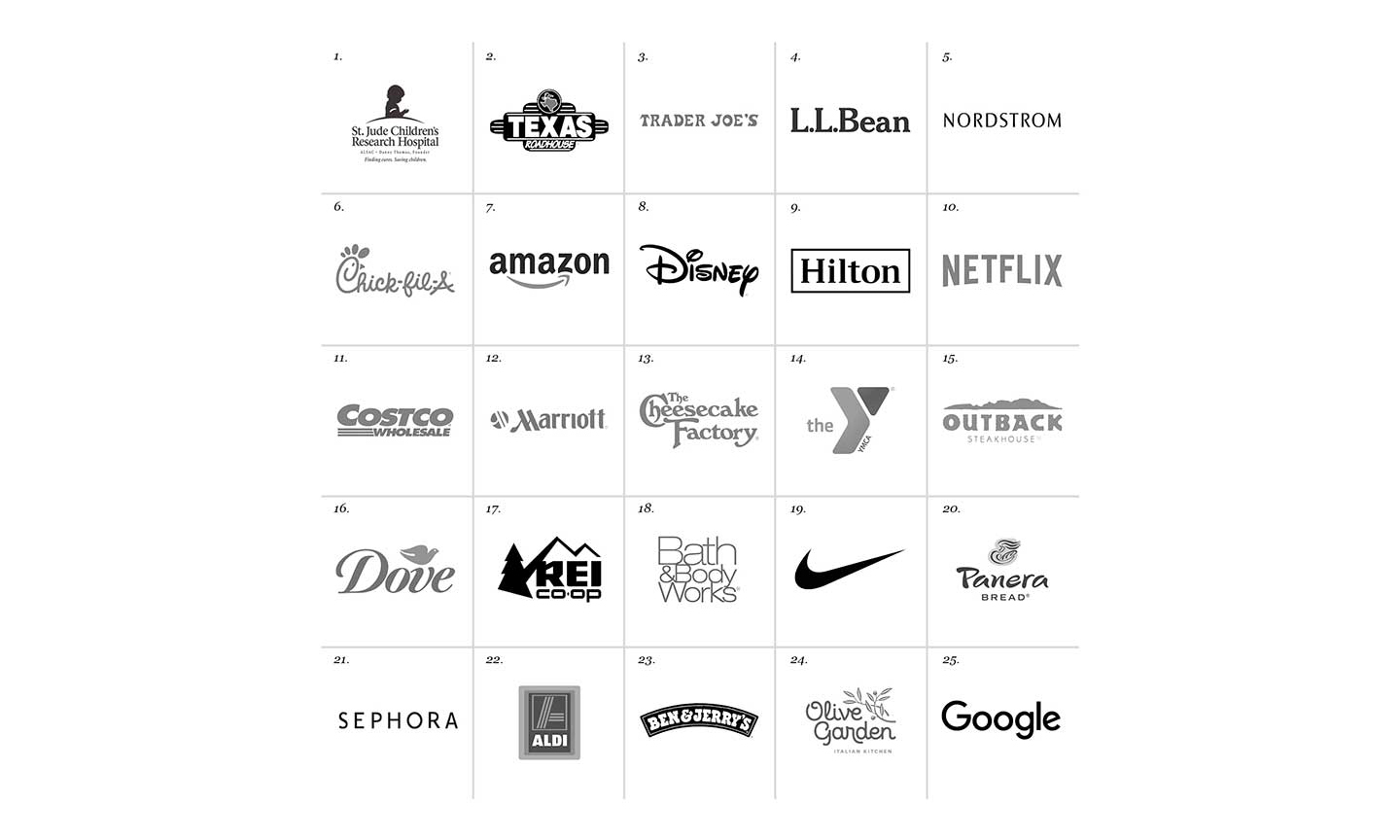Budget-friendly, community-oriented grocery stores like Trader Joe’s, Costco and Aldi offer some of the best customer experiences of 2018, according to a new study from global customer agency C Space. The study demonstrates that it is the emotional aspects of customer experience that help companies stand out from the competition and create growth.
C Space, a division of the Interbrand Group of Companies, has released “Customer, Experienced,” a new report which codifies the 21 emotional cues that drive where and why people choose to spend—and statistically links those factors to company growth metrics.
Findings in the report prove that companies which display the same emotional cues that people value in strong human relationships—such as making customers feel smart and proud, noticing and appreciating loyalty, being interested in ongoing dialogue and sharing customers’ values—outperform companies that don’t.
Companies that deliver better on these emotional cues saw a direct correlation to growth, the study found. These cues are linked to increased volume and frequency of purchase and also likelihood to recommend. In short, customers who have more emotionally connected experiences with companies help those companies grow.
In the study, 26,000 U.S. consumers were asked to think of a company that “gets them” and rate that company against 21 emotional cues, including “They notice and appreciate my loyalty” or “They make me feel smart.” The study collected opinions on more than 1,000 top companies across 19 industries.
The study revealed that U.S. customers rate regional grocers highly, demonstrating that these brands have succeeded in creating the emotional cues that matter to their customers through a return to localism.
“Through their strong community footprint, focus on local produce and initiatives to support the local economy, they have been able to build more meaningful relationships with their customers,” says C Space. “This back-to-basics approach has enabled smaller players to create platforms that the bigger players have struggled to activate authentically—for example, the importance of locally sourced products, championing local economies, talking credibly about supporting local farmers and local jobs and instill confidence around heritage, authenticity and freshness of the produce in stores.”
Aldi, which ranked 22nd, makes customers feel good about the decision to shop, the study found. The retailer conveys a sense of value, and customers say that it’s a business that’s out there supporting families from all different backgrounds. Trader Joe’s (3rd) and Costco (11th) performed significantly well with regard to statements like, “Make Me Feel Good” and “Make Me Feel Smart,” highlighting the perceived positive relationship between U.S. consumers and their go-to retailers.
“Customers have the ultimate power: the power of choice,” said Charles Trevail, Global CEO of both C Space and Interbrand. “Choice is a powerful force, and one that isn’t entirely rational. Choices are made in the context of a customer’s experience—past, present and future. It stands to reason that customers choose companies that offer better experiences—who meet our emotional needs as well as our functional ones. Companies that connect with who we want to be, not who their data says we were.”
According to C Space methodology, brand growth comes from understanding and designing around people—the emotions they feel, the daily decisions they make, the challenges they face, and everything that happens in between. Brands that showed higher levels of these traits saw a direct correlation to business performance, driven by customer advocacy and repeat purchasing.
“Customers who feel that a company ‘gets’ them, or that it stands for something, or speaks their language, have connected in a way that is more than just functional. When customers feel these emotional cues, they’ll help the best companies grow their brand,” said Bill Alberti, chief client officer, C Space. “We’ve found a way to decode the emotional cues within the best customer experiences and codify them into an actionable framework that any business can apply within its own unique context.”
Keep reading:
Market Force Names Aldi ‘Value Leader’ For Eighth Consecutive Year
The Key To Competing With Digital Retail Is Consumer Loyalty
Food Retail Study Determines Transparency Yields Greater Brand Loyalty


You give these high marks but you leave out Publix & Wegman’s – which has a much better customer experience than these. You cannot do all your shopping at any of these stores. Costco is a bulk purchase store, Aldi does not carry enough of anything and Trader Joe’s is the same.